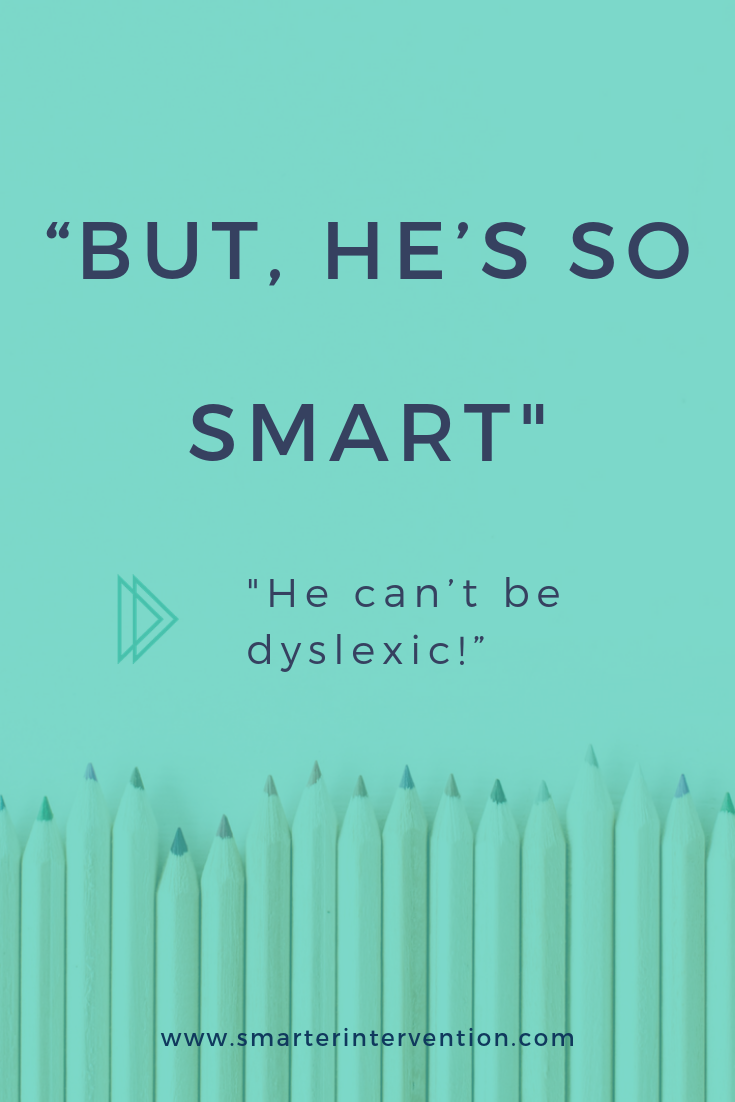“But, he’s so smart, he can’t be dyslexic!”
When I begin to suspect that a child may be dyslexic, one of the sure-fire things to tip me off is observing a really bright student struggle with reading a simple text.
When discussing my concerns with teachers, they often say, “But, he’s so smart, he can’t be dyslexic!”
Dyslexia does not have any correlation to a person’s intelligence and in fact, people with dyslexia often have above-average IQs. We assume that if a person is smart that they are a strong reader. Dyslexia defies this assumption.
When analyzing classroom data, I often look for students I call ‘splintered.’ A splintered student has a sharp contrast in their scores; high in some areas, low in other areas. These splinters often reflect the paradox that is dyslexia; high intelligence and above-average strengths in some areas while also having dips in data that are below grade level. These dips can often be overlooked or dismissed as ‘just a bad day’ to reconcile or explain the splinter in the data unless you understand dyslexia.
Once a child was on my radar, another informal measure that I would use in the classroom was to really hone in on that student’s comprehension skills during my read-aloud time and compare this to their capacity for comprehending text they read independently. Again and again, I found that my bookworms, my most eager read-aloud fans, my front and center “please don’t stop reading” students were my dyslexic students. Just because reading was hard for them didn’t mean they didn’t love books and stories.
These were the students who I observed making the most profound and astounding connections between texts or the students who understood character nuances when it went right over the heads of their peers. These were the students who would talk to me about the book long after it was over and still use the interesting vocabulary they recalled from the text, or ask questions about different ending scenarios that could have played out. These were my most dedicated book lovers. Until it came time for them to read. Once it was their turn, I saw a drastic change in their eagerness to embrace a book, their ability to comprehend the story, and their reflective thoughts beyond the text.
When a dyslexic child can hear a story read to them by another person or in an audio format, their comprehension abilities and strategies shine. When that child is required to do the reading, their energy is focused on decoding, and little is left for comprehending.
Providing various means for students to access grade-level texts in the classroom can open a whole new world for these students. I encourage you to create a culture that embraces ‘ear reading’ and allows students (all students) to read along with texts online through sites from the local library or others such as Audible.com, Epic, or Learning Ally.
Remember that a student’s strengths and weaknesses are determined by the tasks we are asking them to do. Don’t let this lead to assumptions. Your struggling readers may be some of your brightest students hiding in plain sight!
*Suggestions to outside websites are not an endorsement for all content and information contained there. We do not receive any incentives for these recommendations.
